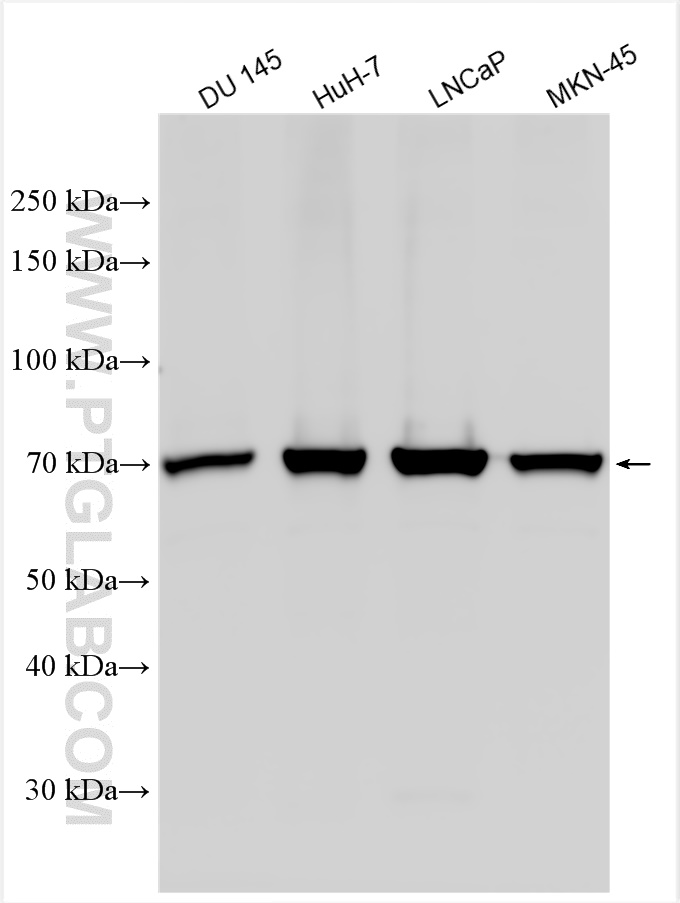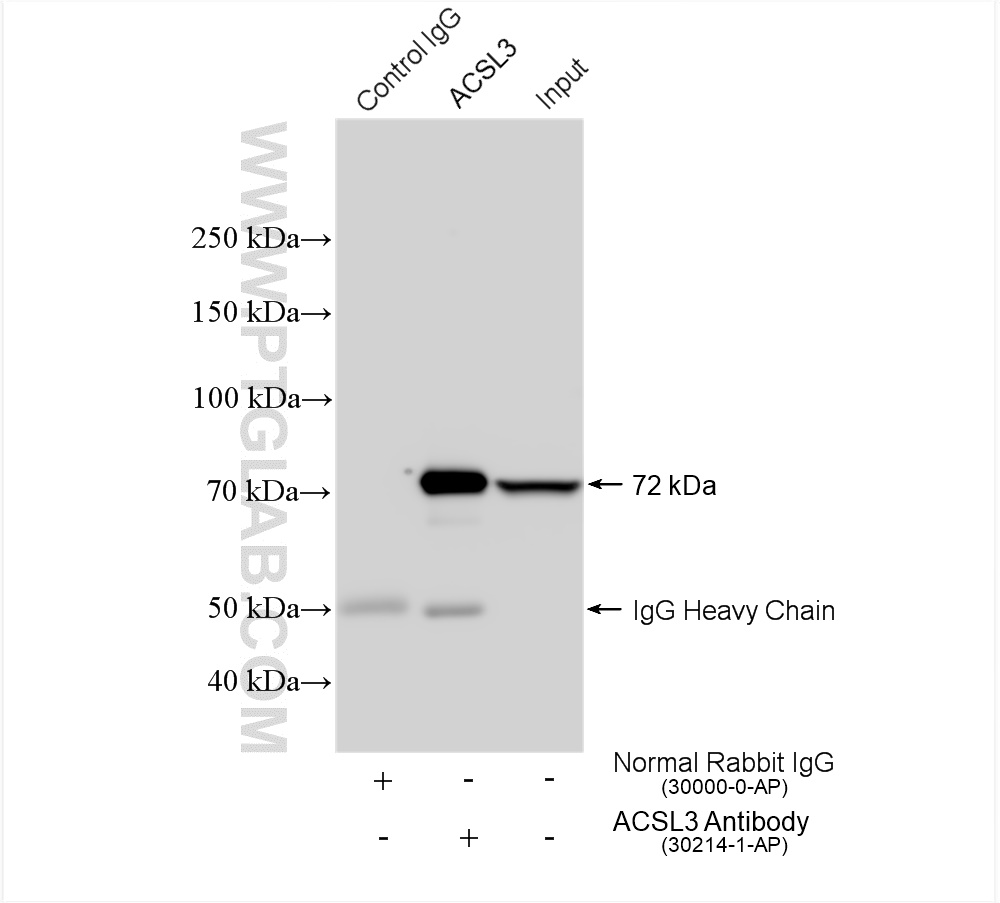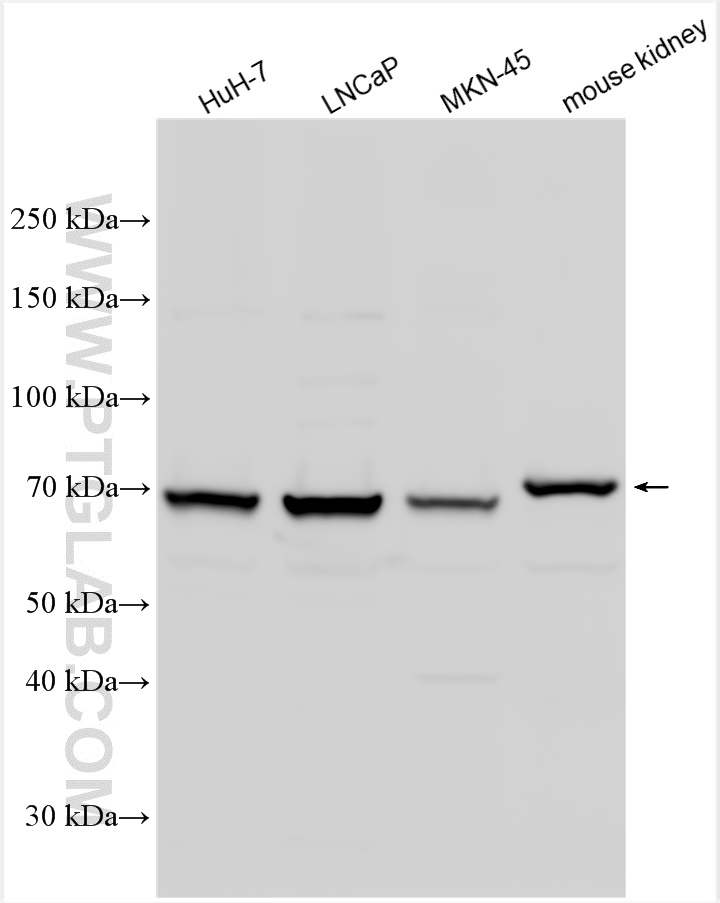验证数据展示
经过测试的应用
| Positive WB detected in | DU 145 cells, HuH-7 cells, LNCaP cells, MKN-45 cells, mouse kidney tissue |
| Positive IP detected in | LNCaP cells |
推荐稀释比
| 应用 | 推荐稀释比 |
|---|---|
| Western Blot (WB) | WB : 1:1000-1:8000 |
| Immunoprecipitation (IP) | IP : 0.5-4.0 ug for 1.0-3.0 mg of total protein lysate |
| It is recommended that this reagent should be titrated in each testing system to obtain optimal results. | |
| Sample-dependent, Check data in validation data gallery. | |
产品信息
30214-1-AP targets ACSL3 in WB, IP, ELISA applications and shows reactivity with Human, mouse samples.
| 经测试应用 | WB, IP, ELISA Application Description |
| 经测试反应性 | Human, mouse |
| 免疫原 | ACSL3 fusion protein Ag33005 种属同源性预测 |
| 宿主/亚型 | Rabbit / IgG |
| 抗体类别 | Polyclonal |
| 产品类型 | Antibody |
| 全称 | acyl-CoA synthetase long-chain family member 3 |
| 别名 | ACS3, ACSL3, FACL3, LACS 3, LACS3, PRO2194 |
| 计算分子量 | 80 kDa |
| 观测分子量 | 72 kDa |
| GenBank蛋白编号 | BC041692 |
| 基因名称 | ACSL3 |
| Gene ID (NCBI) | 2181 |
| RRID | AB_2935532 |
| 偶联类型 | Unconjugated |
| 形式 | Liquid |
| 纯化方式 | Antigen affinity purification |
| UNIPROT ID | O95573 |
| 储存缓冲液 | PBS with 0.02% sodium azide and 50% glycerol pH 7.3. |
| 储存条件 | Store at -20°C. Stable for one year after shipment. Aliquoting is unnecessary for -20oC storage. |
背景介绍
ACSL3, also named as ACS3, FACL3 and LACS3, belongs to the ATP-dependent AMP-binding enzyme family. Acyl-CoA synthetases (ACSL) activate long-chain fatty acids for both synthesis of cellular lipids, and degradation via beta-oxidation. ACSL3 mediates hepatic lipogenesis. Preferentially uses myristate, laurate, arachidonate and eicosapentaenoate as substrates. Has mainly an anabolic role in energy metabolism. Required for the incorporation of fatty acids into phosphatidylcholine, the major phospholipid located on the surface of VLDL (very low density lipoproteins). The antibody is specific to ACSL3.
实验方案
| Product Specific Protocols | |
|---|---|
| WB protocol for ACSL3 antibody 30214-1-AP | Download protocol |
| IP protocol for ACSL3 antibody 30214-1-AP | Download protocol |
| Standard Protocols | |
|---|---|
| Click here to view our Standard Protocols |


